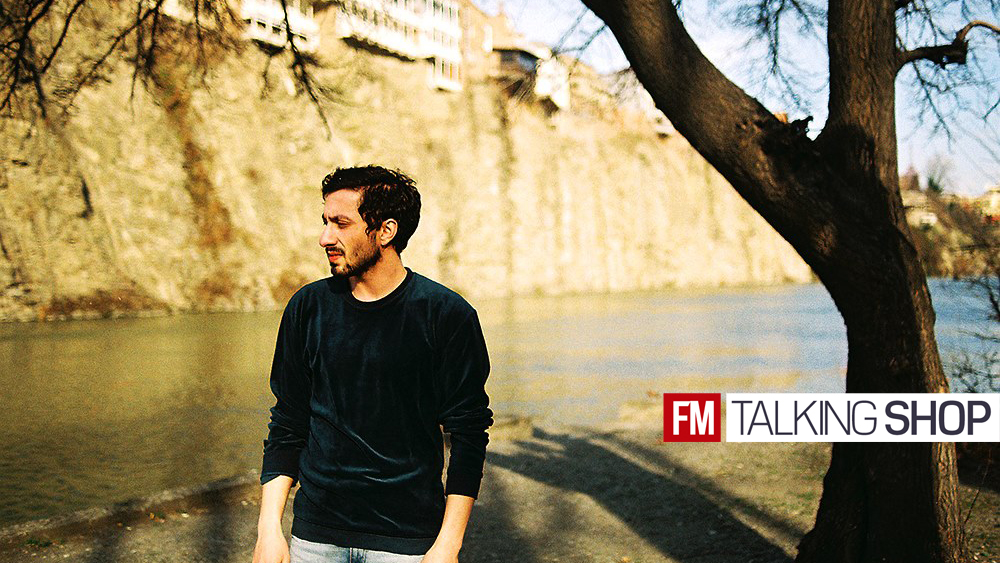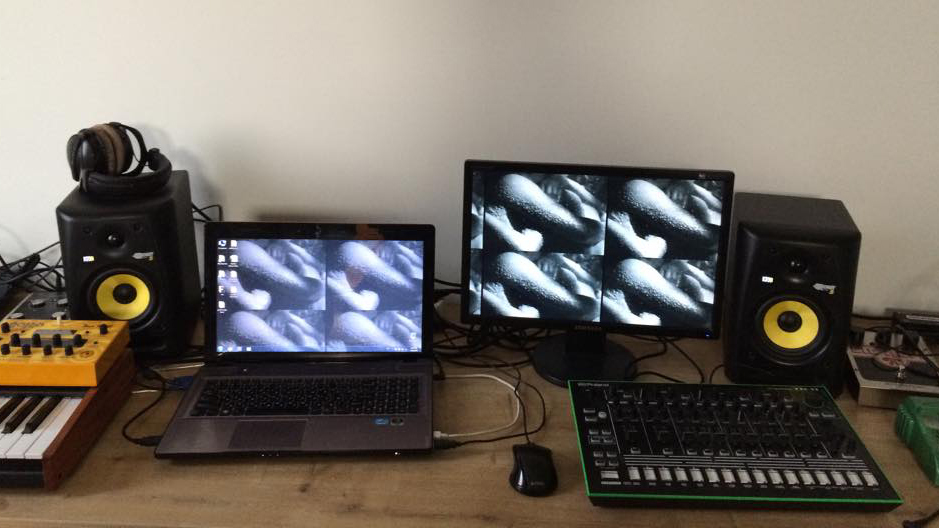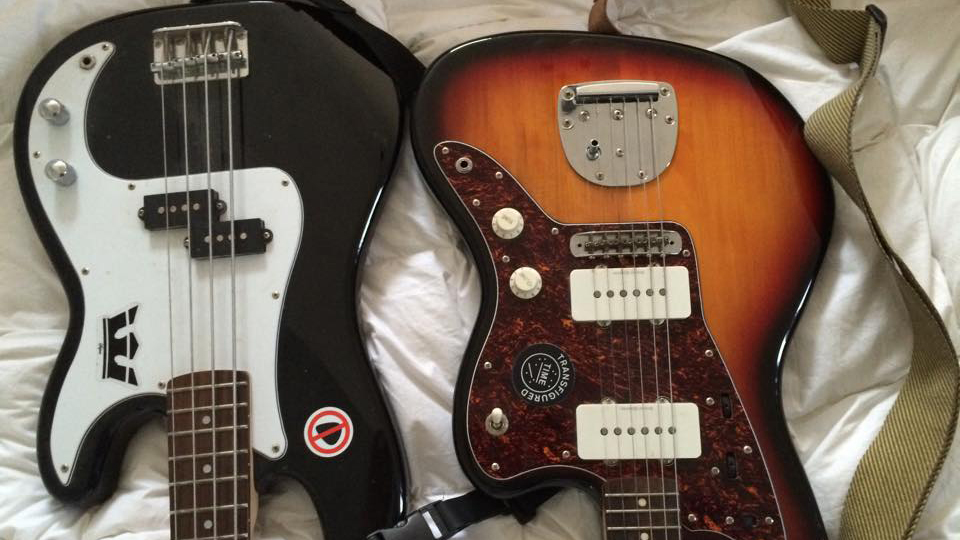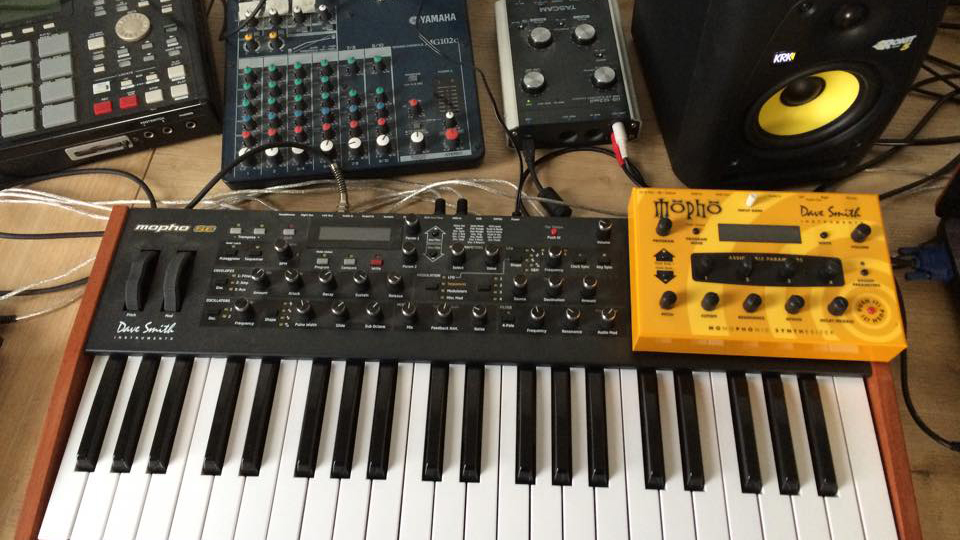Talking Shop: Gacha
The Georgia-based producer talks us through the creation of his debut album for Apollo

Want all the hottest music and gear news, reviews, deals, features and more, direct to your inbox? Sign up here.
You are now subscribed
Your newsletter sign-up was successful
With a string of EPs on R&S offshoot Apollo, Georgian producer Gacha has marked himself out as an electronic music with an impeccable ear for atmosphere and texture.
With his gorgeous debut album, Send Two Sunsets, due to drop on the label early next month, FM caught up with Gacha to find out more about his approach to creating music.
When did you start making music, and how did you first get started?
"When I was a kid, I really wasn't interested that much in music. I was more interested in playing outside with my friends and sports. My cousin was in a band playing rock music, and the first guitar I saw was at his place, so he was rehearsing at his house and I was really impressed and interested in learning how to play this instrument and he taught me the basics.
"Later I moved from Batumi to Tbilisi with my family, I was ten years old. I didn't know anyone there except schoolmates and I wasn't really social, therefore had a lot of time for music. I stayed at home and played the guitar all day long. I was also getting really into listening to music at that time, mostly bands from the '60s and '70s."
Tell us about your studio/set-up
"The studio is my room, where I live and make music. I use lots of hardware such as Korg R3, DSI Mopho SE, Akai MPC1000, Roland TR-8, MicroKorg XL and lots of pedals like reverb/delays etc. Also I use a couple of VST plug-ins such as the Lexicon Reverb.
Want all the hottest music and gear news, reviews, deals, features and more, direct to your inbox? Sign up here.

"I have Jazzmaster guitar and some cheap electric bass. The thing that I like about it is that I can just sit in my room and improvise and play for a few hours and then edit it in Ableton and choose the best parts. It's a very pleasant process.
"I would like to add lots of modular synthesizers to my collection and some vintage synths from Roland, Moog, Yamaha... but I can't afford it at the moment."

What DAW (or DAWs) do you use, and why did you choose it?
"When I started to make make music I used Cubase and Reason, and now I've completely moved to Ableton Live, because it gives you the possibility to implement your ideas in realtime."
What one piece of gear in your studio could you not do without, and why?
"My guitar, because it's the simplest way for me to make up melodies. I could sit for hours just playing and trying to achieve interesting sound textures using some pedals. Second, the DSI Mopho SE - it's great for creating sequences and basslines. It has a very warm and powerful sound compared to the other synths I have."

What's the latest addition to your studio?
"I recently bought a Roland SP-404. My friend and I used it live; we performed together and I realised that it's a really necessary thing to have, if you use samples and loops during live performances."
What dream bit of gear would you love to have in you studio?
"I'm a huge gear freak and it would take me a long time to list all the things I desire, although what first came to my mind would be a Yamaha CS-80, Juno-6, Korg Polysix, Prophet 08, DSI Tempest, and Buchla 200e System 7. Also some acoustic drums by Gretsch, and lots of vintage electric guitars..."
When approaching a new track or project, where do you start?
"I start in many different ways. Either I sit down and program a beat, or play the guitar, or play a keyboard. Sometimes it's been a sample that started a track, or jamming with a drum machine and synths. I like create an atmosphere with field recordings as well.
"It's never like there's any shortage of ideas. It's more chasing that moment where something connects with me emotionally and makes me keep going."
What are you currently working on?
"I just finished an album for Apollo Records, which is out May 4th. I have a couple of EPs scheduled too. Also, I'm working on new music and some new projects I'm very excited about but can't really talk about it right now, so keep an eye out!
"I also have a record label, Transfigured Time, which I established with my friends and we are releasing our second compilation with some really good artists soon. Keep an eye on that too."
Gacha's essential music making tips:
Create an atmosphere
"I wouldn't dare to give technical advice to anyone, because I think that I don't know much about production techniques. Although I always try to use EQ to filter out the frequencies to make my sounds more moody, and use reverb to warm it up a bit."
Collaborate
"It's always good to work with other musicians or producers, because you try to overcome yourself and surprise the person you're working with. To collaborate with someone who has a drastically different approach and style of music making gives you an opportunity to learn a lot."
Take your time
"Always take your time, don't rush to show it off. Hold on to your work for a bit and listen to it after a while, and time will show if it's good enough or if you have to work on it a bit more."


Future Music is the number one magazine for today's producers. Packed with technique and technology we'll help you make great new music. All-access artist interviews, in-depth gear reviews, essential production tutorials and much more. Every marvellous monthly edition features reliable reviews of the latest and greatest hardware and software technology and techniques, unparalleled advice, in-depth interviews, sensational free samples and so much more to improve the experience and outcome of your music-making.
